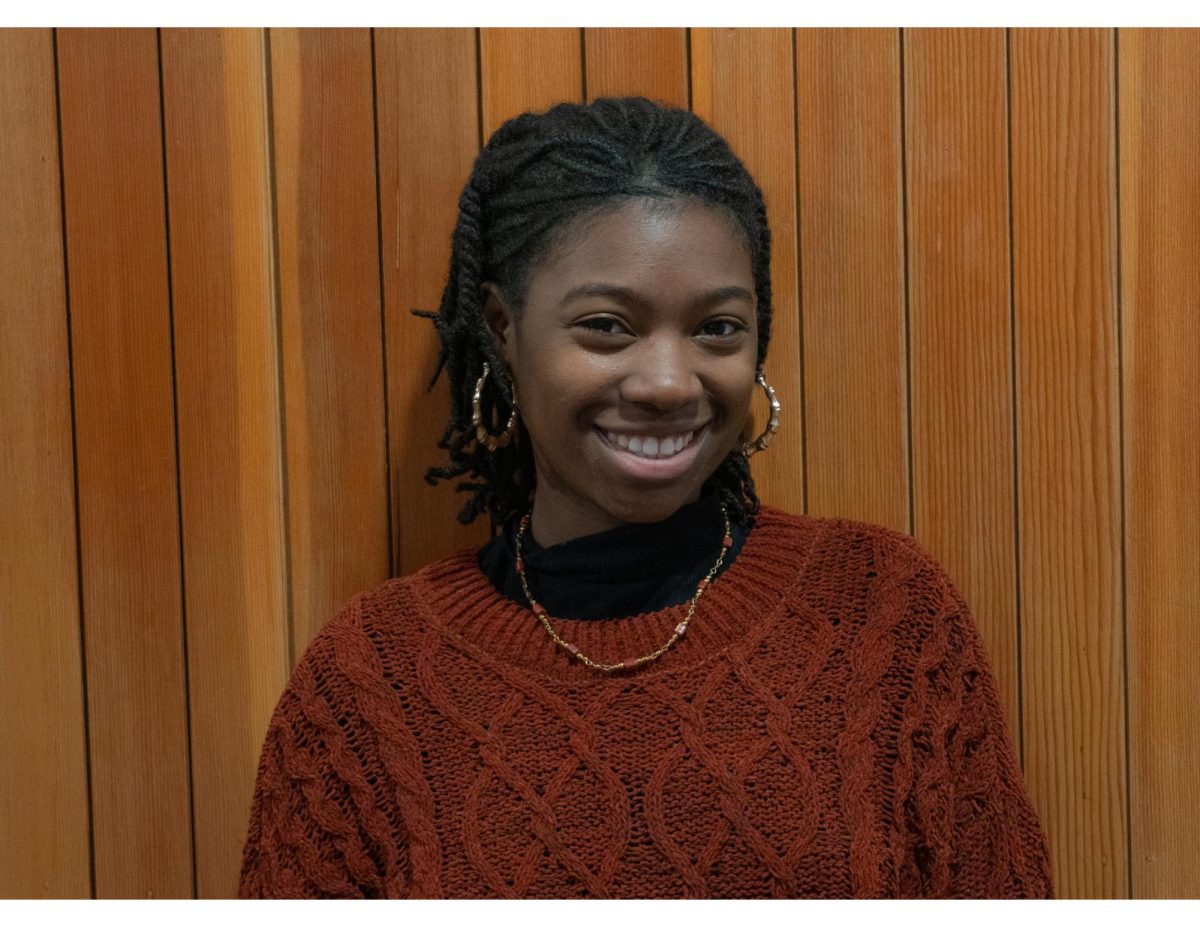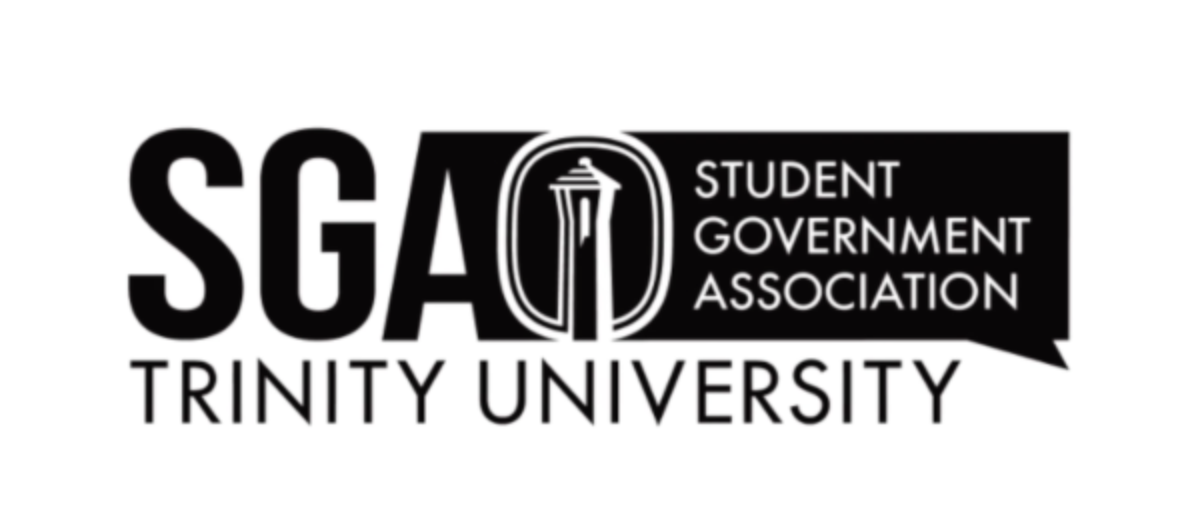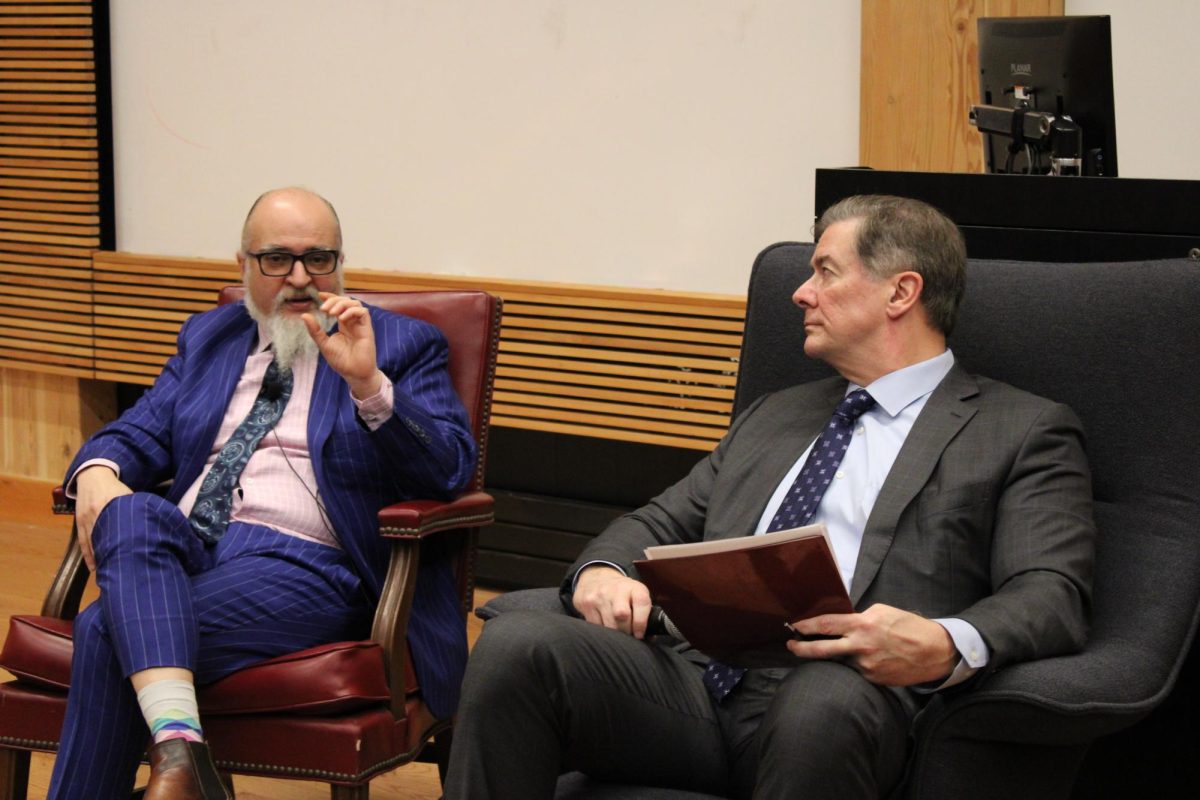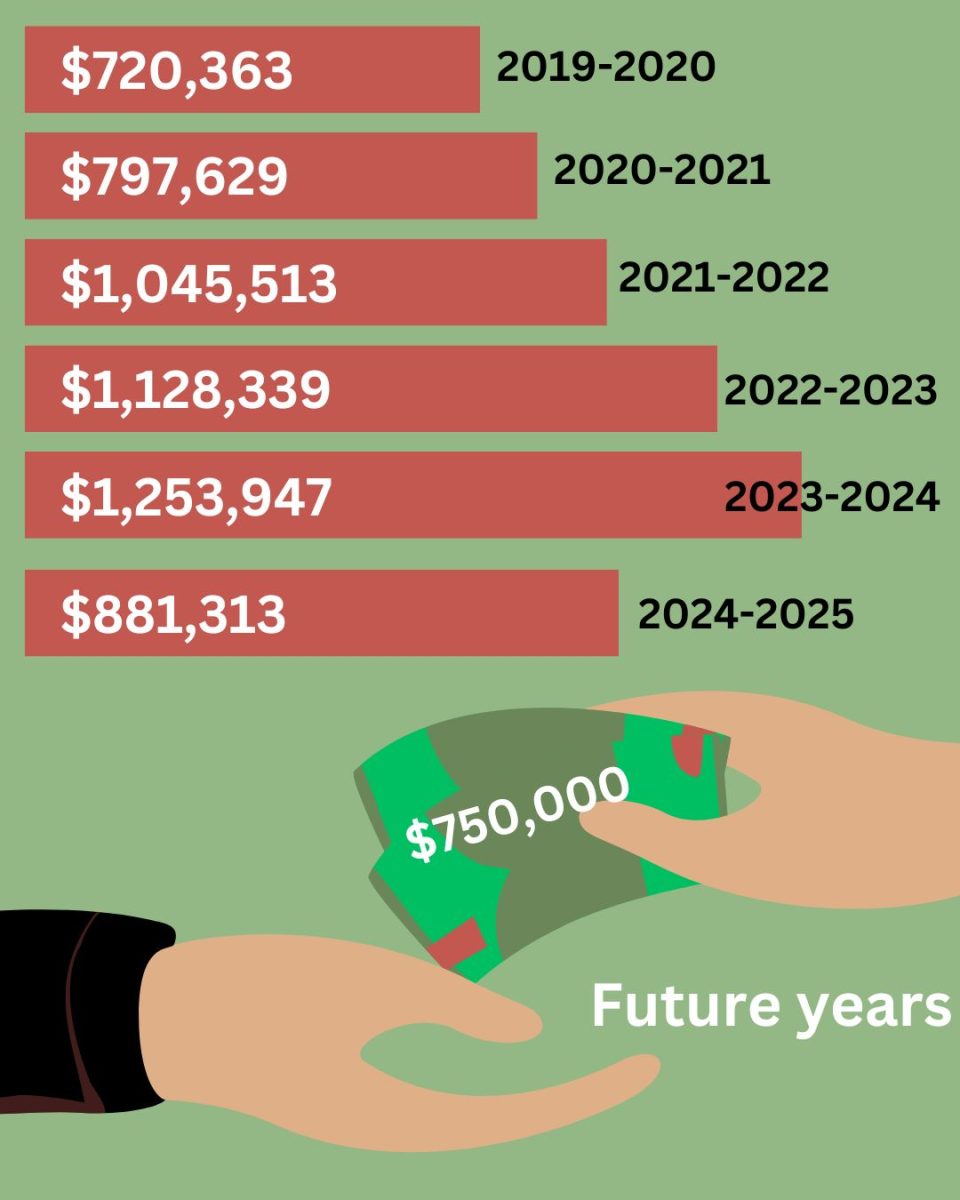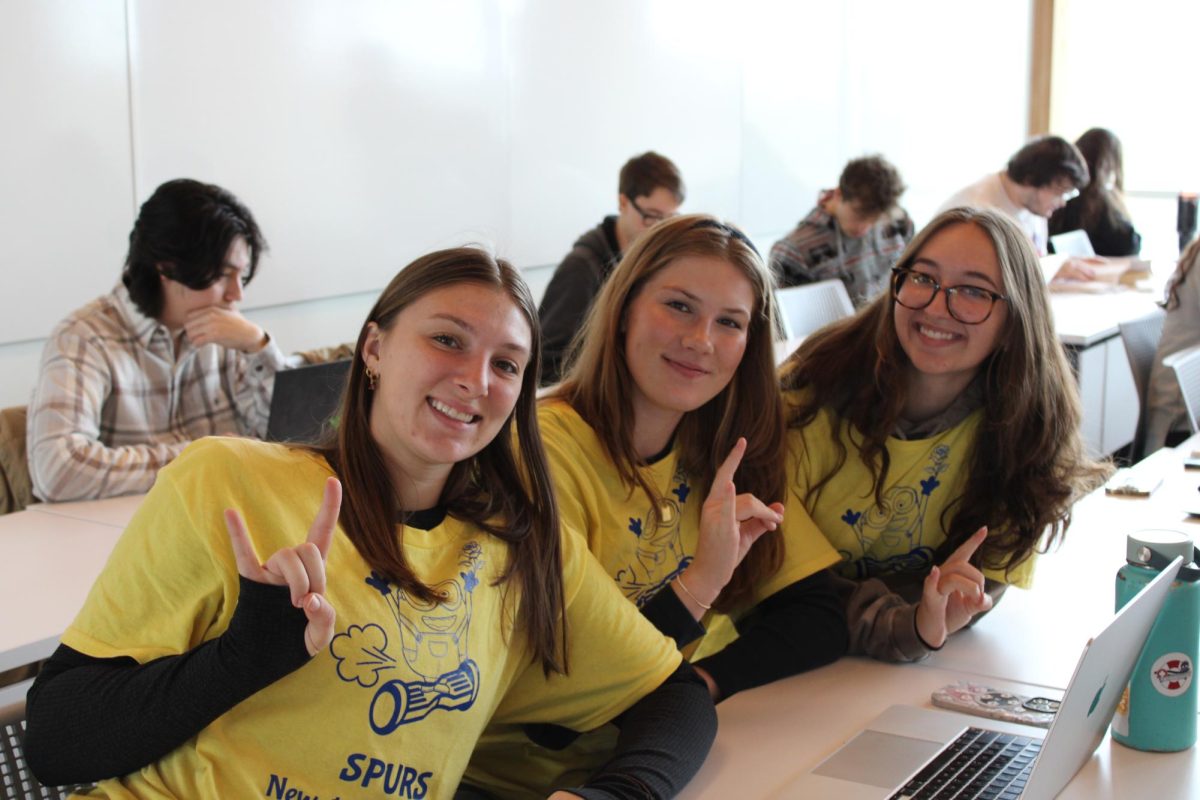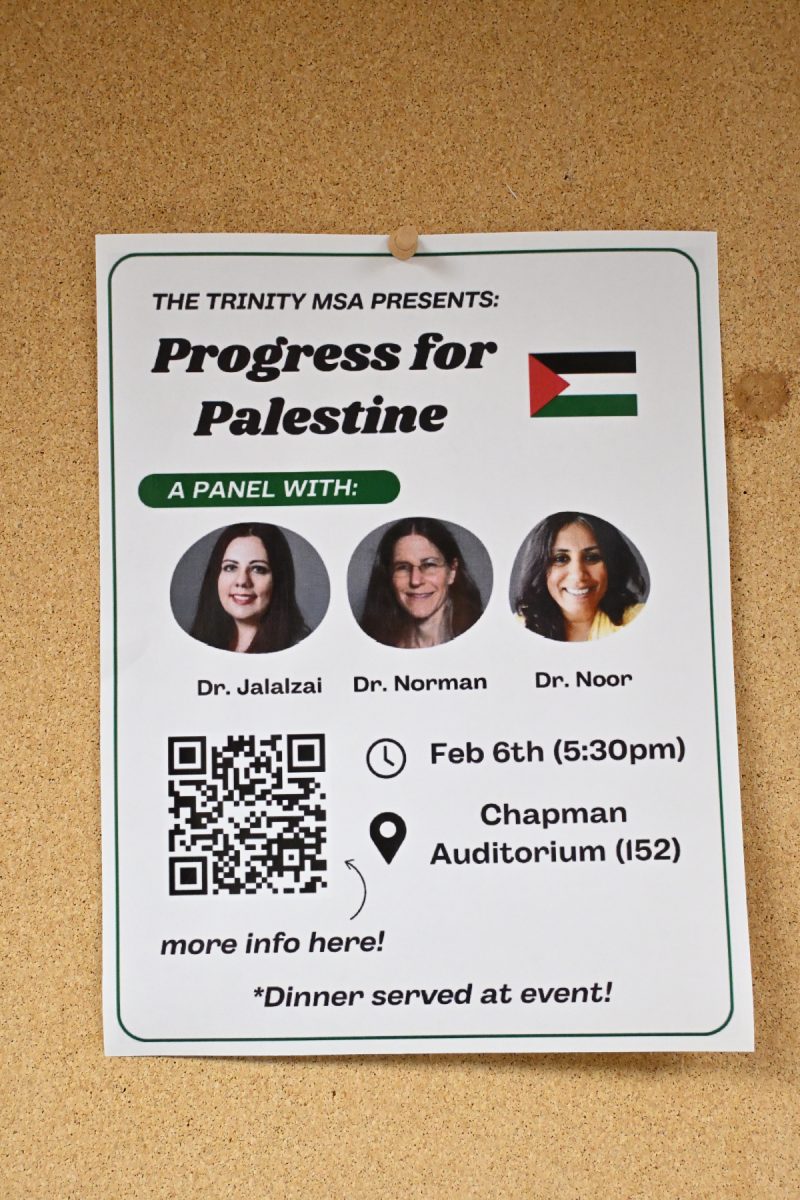On Tuesday October 27, the departments of urban studies, sociology and anthropology, political science and the Center for Innovation and Entrepreneurship welcomed Shauneen Lambe, a British lawyer and barrister.
According to Leeroy, “Lambe’s work in the criminal justice system has earned her awards from the World Economic Forum and the Eisenhower World Leadership Program among others. She will also discuss her work on Louisiana’s death row and as the founder of Just for Kids, which provides advocacy, support and assistance to young people in difficulty.”
Lambe’s talk was made possible by the Eisenhower Fellowship.
“She is here courtesy of the Eisenhower Fellowship that we should all be so lucky to get someday. She is one of twenty-five people who have been chosen from around the world by the Eisenhower Foundation to come to the United States in order talk to people about the work she has accomplished and also to share what she has learned from organizations in the United States who do projects with kids,” said Sarah Beth Kaufman, professor of sociology at Trinity University.
Lambe began her talk by discussing how she began her work in the field of social justice. She talked about her client, Ryan Matthews, who was on death row in Louisiana.
“He was seventeen years old. He received his death sentence on Mother’s Day; the jury had been deliberating all night until about one in the morning. And when they returned the verdict I was in the courtroom in Jackson Parish. I had recently arrived in the United States “” we don’t have the death penalty in England, and this was one of the cruelest things I had seen in my entire life,” Lambe said.
She went on to discuss how her client was innocent of this crime despite being convicted and sentenced to death by twelve jury members.
“What was interesting after the trial was to discover that Ryan was actually innocent. Pulling the pieces together to figure out how an innocent seventeen-year-old had been sentenced to death was a kind of fascinating journey for me,” Lambe said.
Ryan’s case started Lambe’s journey into advocacy work for youths facing trouble with the law.
“That was on the micro level, getting Ryan out of prison, but on the macro level, we were looking at the fact that the United States, the leader of the Western world, was still sending children to be executed. Was there a way that we could change the belief “¦ that children didn’t need to be killed for what they may or may not have done, [as] in Ryan’s case?”
Through her work with the rest of her legal team, Lambe was able to prove to a judge that Ryan deserved another chance in court and he was released in 2004 after five years on death row. She went on to discuss the Supreme Court Case, Roper v. Simmons (2005), which made the execution of a minor illegal based on the fact that the adolescent brain is still developing.
“What I had seen a lot of on that journey was the recognition that even when someone had done something wrong, which Ryan clearly hadn’t, the adolescent brain is really different from the adult brain; the neuroscience was beginning to show that from the age of 14 to even 23 or 24, particularly in boys “” with girls it’s about 20 or 21 “” the brain is still developing. The frontal lobe, which is the consequential thinking part of the brain, is not developed in adolescents in the same way as it is in adults,” Lambe said.
After she went back to the United Kingdom, Lambe decided to begin her advocacy work by creating Just for Kids Law.
“I was really moved by what I had seen with young people and adolescents. I decided to set up a law office there that specialized exclusively in representing young people and young people who had difficulties, legal difficulties. [This way] they didn’t just have to be in the criminal justice system. Perhaps they had other legal difficulties,” Lambe said.
All in all, the cost of locking children away has cost the United Kingdom about four trillion pounds in the last twenty years. Lambe’s group works to protect children’s rights and to enact a systemic change in the way adolescent cases are handled.
“Our aim is to help transform the lives of young people from crisis to stability to independence,” Lambe said.
However, the main goal that Lambe and Just for Kids Law have is to engage youths in social activism work. She discussed the Let Us Learn movement in the United Kingdom which was led by undocumented students and young people trying to gain access to student loans.
“The young people led this movement themselves. They gave the program its name, Let Us Learn, and they’ve done a lot of their own publicity. As a result of that we’ve had over 100 young people contact us in similar situations who have places at university and can’t get in,” Lambe said.
Lambe’s main point of the talk was to encourage young people to become involved in the world around them.
“We call it converting the potential energy, because there is so much potential energy in youth and young people, into kinetic energy. How do we get all of you guys to think about the things that you care about and actually go out there and stand up and speak for them?” Lambe asked the audience.



